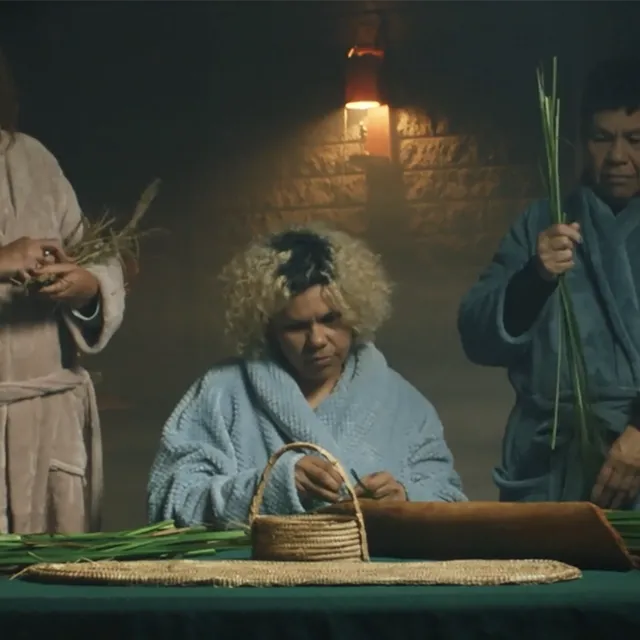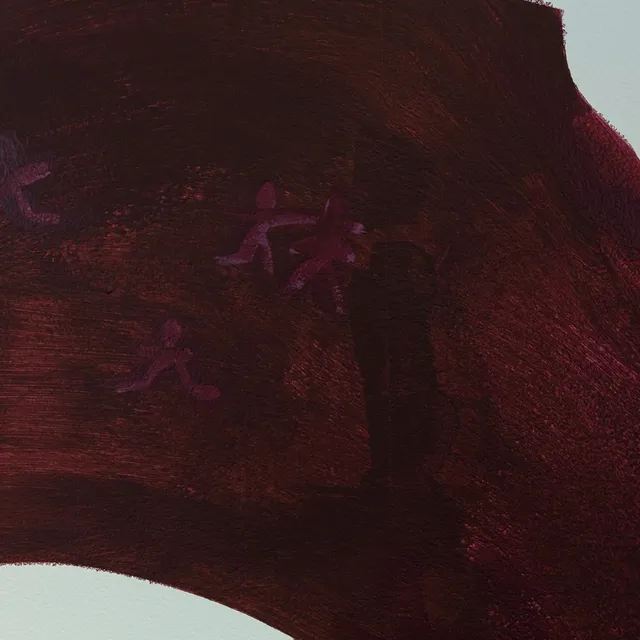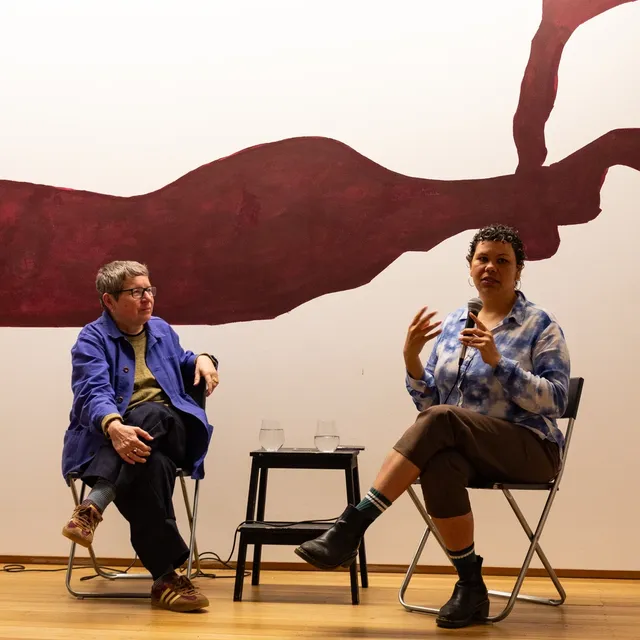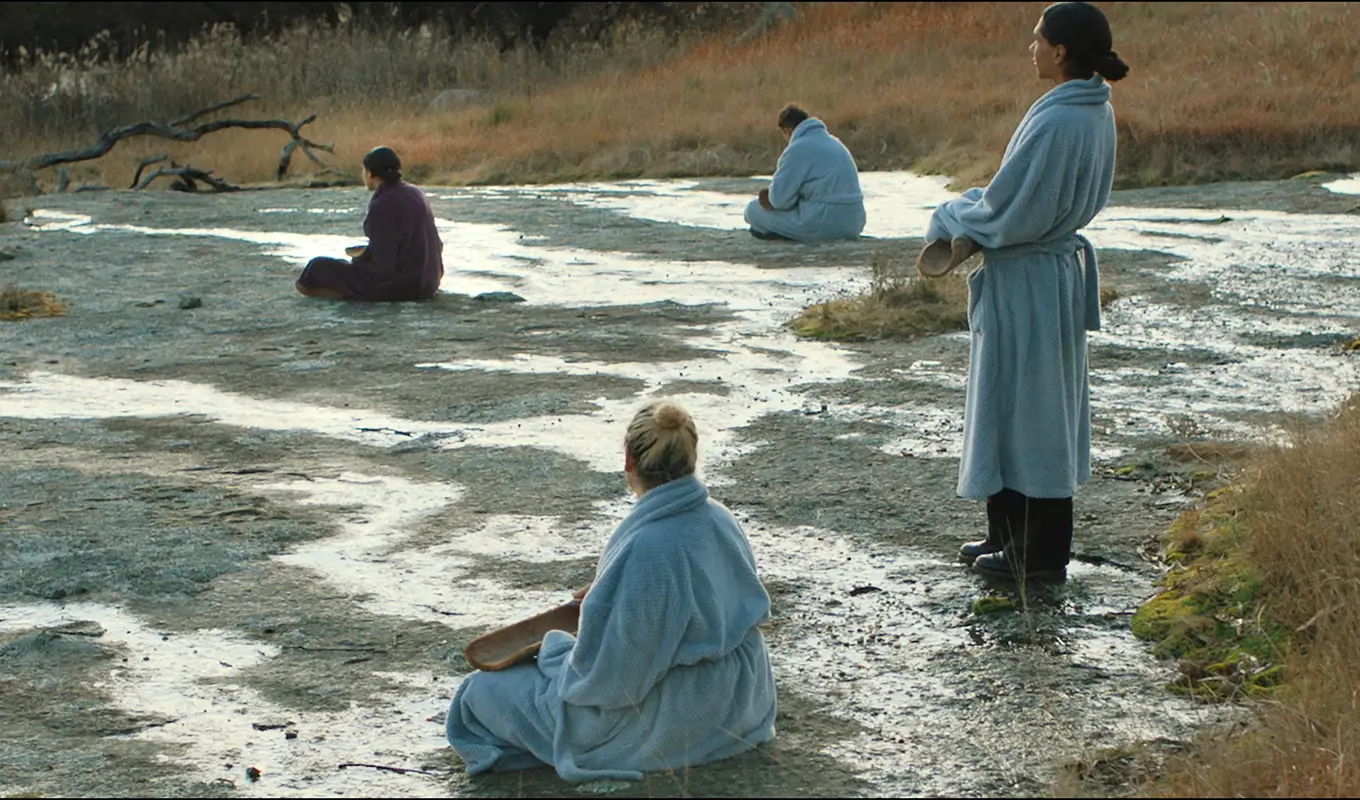“ARKAN & IRBELA”
Gabi Briggs
7 Sept → 10 Nov 2024
Gallery

ARKAN & IRBELA is the first major filmic work by Gabi Briggs, presented as part of the West Space Commission series.
Nurturing the legacy of her late nan Patsy Cohen’s research – formalised in Patsy’s 1990 book Ingelba and the Five Black Matriarchs – ARKAN & IRBELA sees the gallery transformed into a location for the two women to dialogue across time and space, film and print publishing.
ARKAN & IRBELA presents coded knowledge and stories from their family's history on Anaiwan Country, Northern New South Wales. Central to this is the Anaiwan Skinship System – a network of complex relations that define an individual’s responsibilities and relationships to Community and Country, and from which Blak, Anaiwan femininity emerges. The work honours the manifestations of reality, identity and ethics in the Skinship System, that are inherently derived from Country and the relations it sustains.
Structured along conversations and relational moments with family members, ARKAN & IRBELA materialises Anaiwan knowledge within a Story of resurgence, demonstrating the power of cultivating an inter-generational code of ethics within an ongoing relationship to Place. Patsy Cohen generated the research for her book by walking Country with family and Community, revitalising cultural knowledge and story through Place-based memory.
ARKAN & IRBELA engages in a non-linear dialogue with her methodology and intention, by articulating how their family is embedded within the matrix of Anaiwan Country.
Both Briggs’ and Cohen’s research constitute a continued connection to Country, family and culture. By anchoring her practice of Anaiwan cultural revitalisation through that of her nan’s, ARKAN & IRBELA embodies the sentiment expressed by Wakka Wakka and Kombumerri Professor Aunty Mary Graham, ‘I am located, therefore I am’.
ARKAN & IRBELA is a West Space Commission supported by Creative Australia, Creative Victoria, GARUWA, and Yinarr Maramali.
Director: Gabi Briggs (Anaiwan Gedyura); Executive Producer: Genevieve Grieves (Worimi); Production Manager: Amy Hammond (Gamilaroi Yinarr). Ārkan: Kristy Faulkner, Gabi Briggs, Breanna Gordon-Briggs, Caity Briggs, Michaela Gordon-Briggs; Iāna: Lee Hughes, Susan Briggs, Carolyn Briggs, Nicola Briggs, Winnie Widders; Irakēna: Wendy Strong, Angela Cohen, Kaeilyha Smith; Patyang: Krissa Daley, Mariah Cohen-Ahoy.
Programs
A series of programs, open to the public and closed for mob, framed ARKAN & IRBELA within a broader project, grounded in Gabi Briggs' familial connection to Anaiwan Country and formalised by her PhD research.
Opening, Sat 29 Sept, 3 → 5pm
Featuring an introduction by Gabi Briggs and Stacie Piper (Wurundjeri, Dja Dja Wurrung, Ngurai Illum Wurrung).
In Conversation, Sat 28 Oct, 11am → 12pm
Gabi Briggs and Julie Gough (Trawlwoolway) engaged with the complexities of land ownership and access as explored in their practices.
KARA Workshop, Sat 2 Nov, 11am → 12pm
Hosted by Gabi Briggs, this workshop explored the Anaiwan Skinship System, manifesting reality, identity and ethics derived from Country and the relationships it sustains.
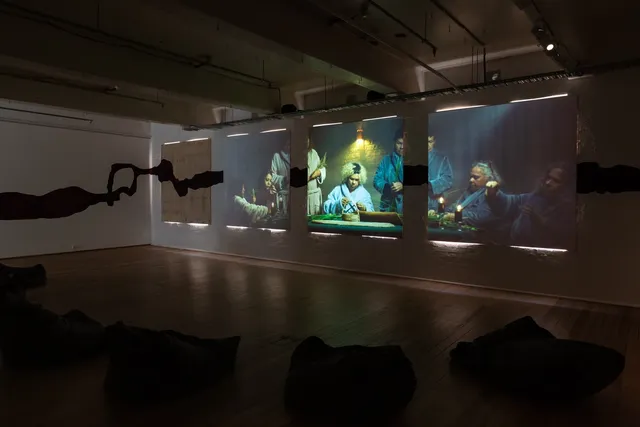
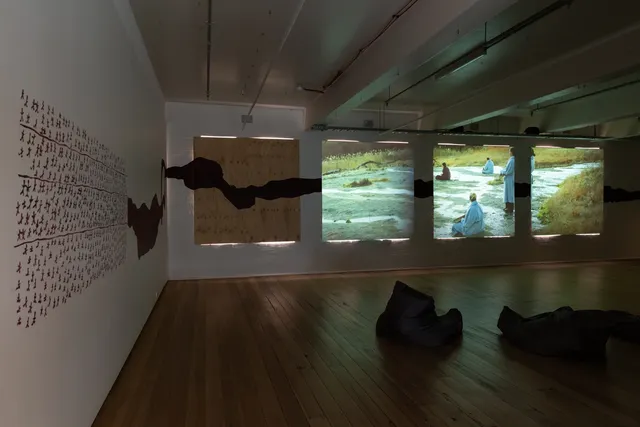
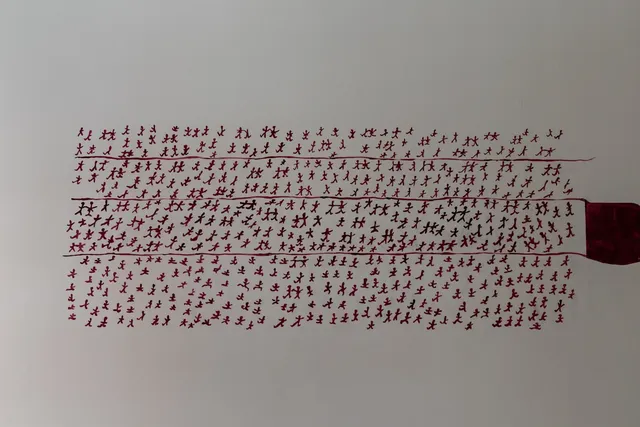
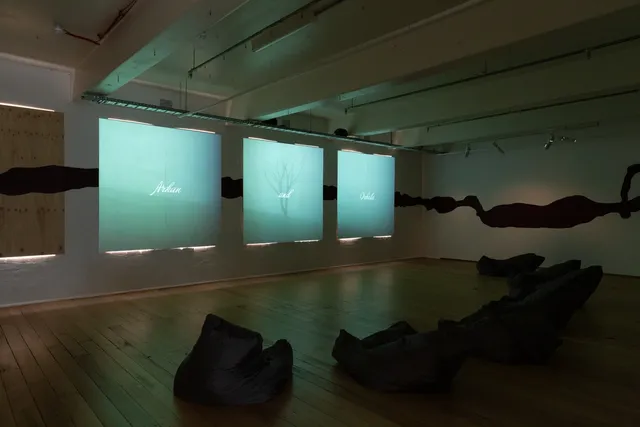
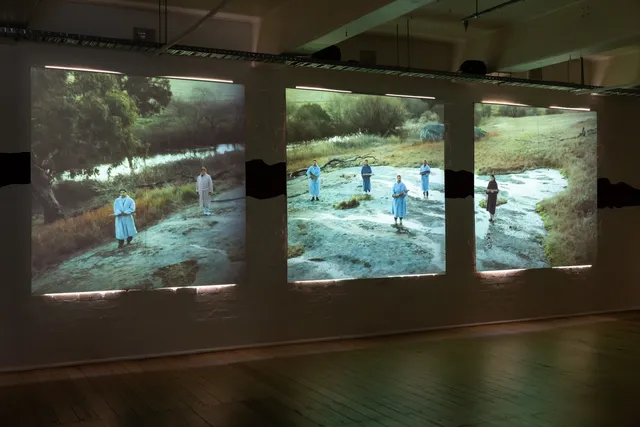
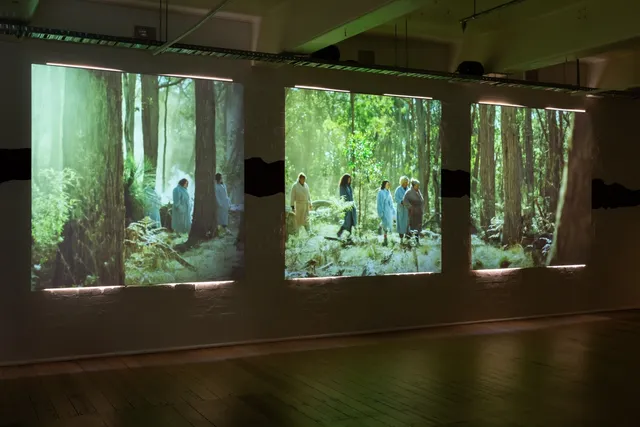
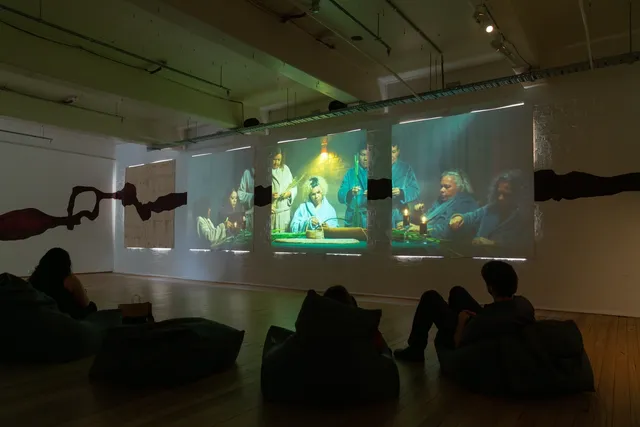
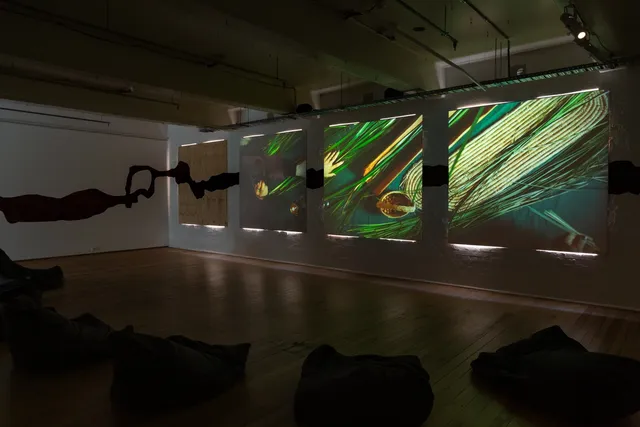
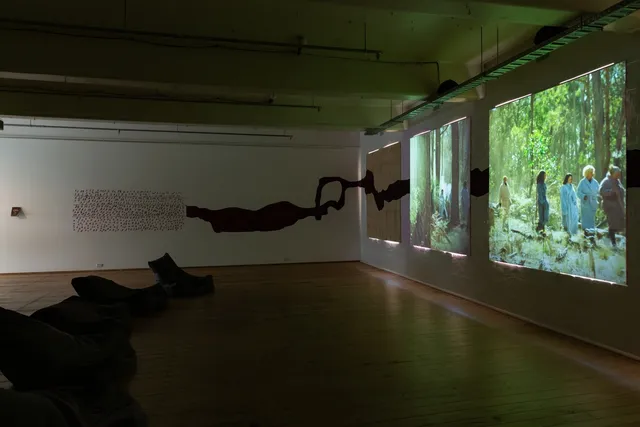
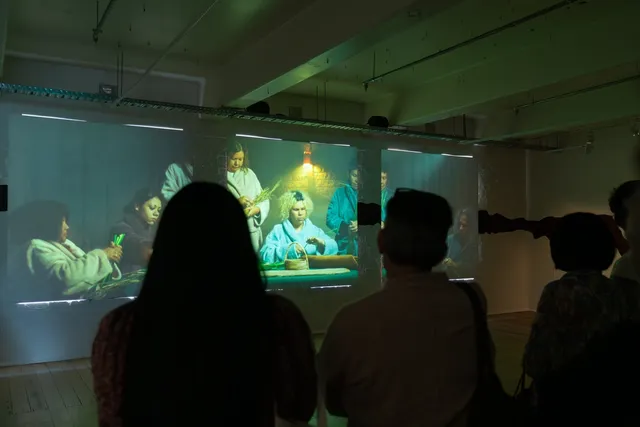
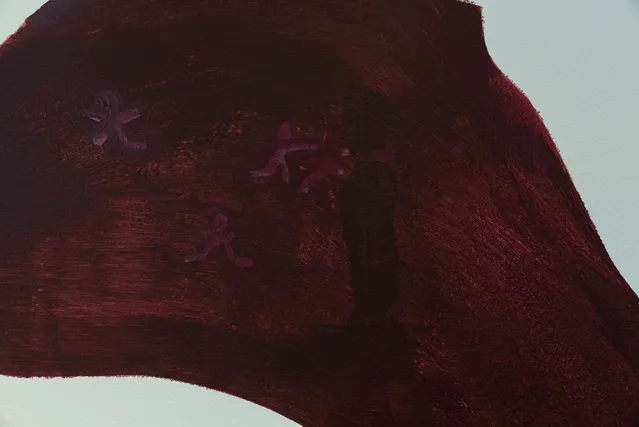
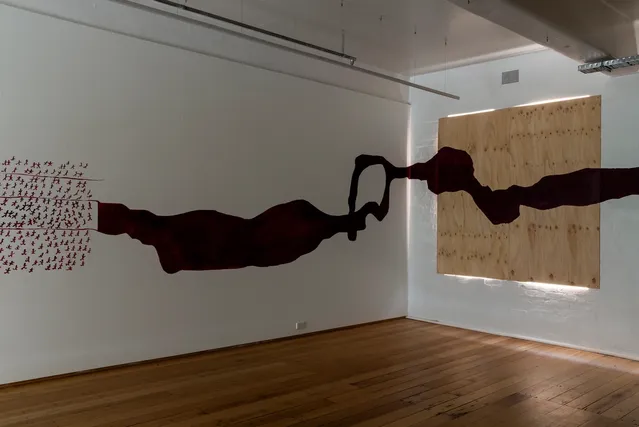



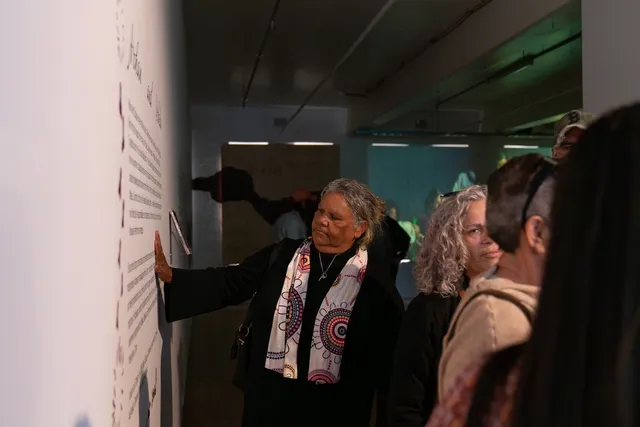

Gabi Briggs is an Anaiwan Gedyura artist, researcher, weaver, and community organiser. Gabi engages with the complexities of race, power, and truth-telling, seeking to restore Indigenous sovereignty and enact self-determination. Her practice reflects a commitment to returning back to Indigenous knowledges. She is a PhD candidate in Wominjeka Djeembana Indigenous research lab at Monash University.
